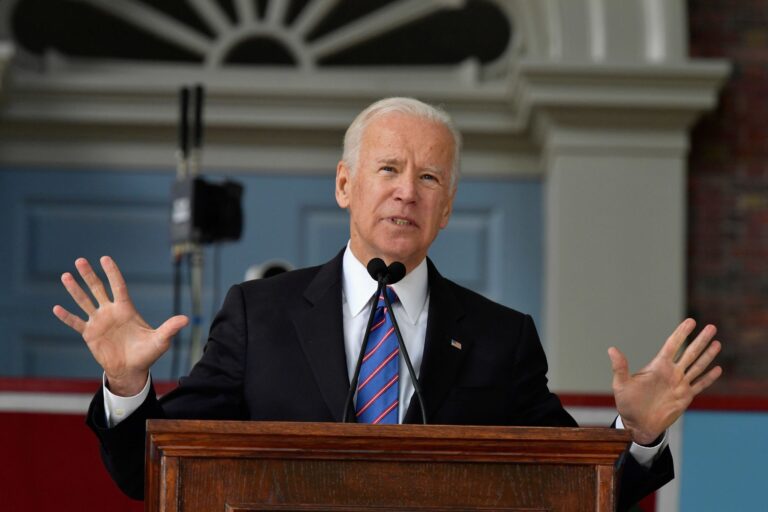On July 21, 2024, President Joseph R. Biden, Jr. made a groundbreaking announcement via his Instagram account. He expressed deep gratitude to the American people and highlighted the significant progress made under his administration. Most notably, he revealed his decision not to seek reelection. This unexpected move is set to dramatically alter the landscape of the upcoming U.S. presidential election and have far-reaching effects on the global economy. In this article, we delve into how President Biden’s decision will influence the political dynamics in the United States and the broader global market.
Domestic Political Impact
Shifting Political Dynamics
President Biden’s decision to step down has instantly reshaped the Democratic Party’s landscape. The race for the Democratic nomination is now wide open, with Vice President Kamala Harris emerging as a strong contender. Other potential candidates, such as Governor Gavin Newsom of California and Senator Elizabeth Warren of Massachusetts, are likely to enter the fray. This development promises a highly competitive Democratic primary season, with various factions within the party rallying around their preferred candidates.
Republican Strategy
On the Republican side, candidates will undoubtedly recalibrate their strategies in response to President Biden’s announcement. With the incumbent not running, Republican hopefuls like former President Donald Trump and Florida Governor Ron DeSantis will likely adjust their campaigns to target Vice President Harris or other Democratic frontrunners. The absence of Biden from the race presents an opportunity for Republicans to refine their messaging and policy focus, aiming to appeal to both their base and undecided voters.
Voter Sentiment
President Biden’s decision will significantly impact voter sentiment. His administration has overseen substantial economic recovery and policy changes, which will be key talking points for Democratic candidates. However, his decision not to run may also open the door for Republicans to criticize the administration’s shortcomings. Voters will be weighing the successes and challenges of the Biden presidency as they make their decisions in the upcoming election.
Economic Impact
Market Reactions
The immediate market reaction to President Biden’s announcement is likely to be mixed. Uncertainty about future policy directions can lead to market volatility. Investors will closely watch the evolving political landscape, particularly the emerging candidates’ economic policies. Stability in economic leadership is crucial for maintaining investor confidence, and any perceived instability could lead to fluctuations in stock markets, interest rates, and currency values.
Policy Continuity and Change
One of the key economic considerations is the continuity of policies introduced by the Biden administration. Under his leadership, significant investments were made in infrastructure, healthcare, and clean energy. If Vice President Harris or another Democratic candidate wins the presidency, there is a possibility of policy continuity, which could reassure markets and investors. However, a Republican victory might lead to policy reversals or shifts, especially in areas like taxation, healthcare, and environmental regulations, impacting various sectors differently.
Global Trade and Relations
The United States’ approach to global trade and international relations will be closely scrutinized in the lead-up to the election. The Biden administration has sought to rebuild alliances and take a more collaborative approach to international challenges such as climate change and trade disputes. A change in administration could lead to shifts in these policies, affecting global trade dynamics. Countries that have benefited from renewed U.S. engagement may face uncertainty, and any aggressive stance on trade could lead to tensions and economic disruptions.
Global Economic Implications
International Markets and Investments
Global markets will be closely monitoring the U.S. election developments. The United States plays a central role in the global economy, and any significant political change can have far-reaching effects. Investors around the world will be assessing the potential impacts of the election on U.S. economic policies, trade relations, and regulatory environments. Emerging markets, in particular, may experience heightened volatility as they are more susceptible to changes in U.S. economic policies.
Trade Agreements and Partnerships
The Biden administration has emphasized rebuilding international partnerships and promoting multilateral trade agreements. A shift in U.S. leadership could affect existing trade agreements and negotiations. Countries currently engaged in trade talks with the U.S. will be keenly interested in the election outcome. The stability of agreements like the USMCA (United States-Mexico-Canada Agreement) and potential new trade deals could be influenced by the incoming administration’s stance on trade.
Climate Change and Environmental Policies
The Biden administration has taken significant steps towards addressing climate change, including rejoining the Paris Agreement and promoting clean energy initiatives. The global response to climate change is heavily influenced by U.S. policy due to the country’s significant carbon emissions and technological leadership. A change in administration could impact global climate efforts, either by accelerating initiatives under a Democratic leader or potentially slowing progress if a Republican administration takes a less aggressive stance on climate policies.
Conclusion
President Biden’s decision not to seek reelection marks a pivotal moment in U.S. politics and has significant implications for the global economy. The upcoming election will determine the direction of U.S. domestic and foreign policies, impacting markets, international relations, and global economic stability. As the race for the presidency unfolds, both American voters and the global community will be closely watching, anticipating the changes that the next U.S. administration will bring. The 2024 election is set to be a defining moment, shaping the future of the United States and its role in the world economy.



